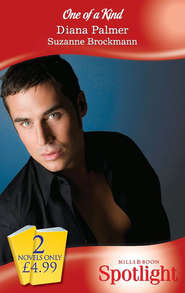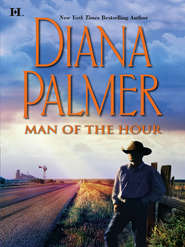По всем вопросам обращайтесь на: info@litportal.ru
(©) 2003-2024.
✖
Loveplay
Автор
Год написания книги
2018
Настройки чтения
Размер шрифта
Высота строк
Поля
Six years later, she could still feel the wild impact of his mouth on hers. Months of watching him, hoping, praying for just a few seconds in his arms, and it had happened just that suddenly.
She remembered going stiff from the burst of pleasure, mingled with apprehension, at the intimacy of his hold. Cul was eight years her senior and obviously experienced, and she hadn’t known what he’d expected from her. The expression on his face when he lifted his head had been a revelation.
“Is that the best you can do?” he’d asked wonderingly.
She’d flushed and tried to get away, but he’d held her securely against his long, lean body. There was steel in his fingers, in the wiry arms that held her.
“Not yet,” he’d murmured, studying her. “You’ve always reminded me of Elizabeth the First. Do you remember what they called her, Bett?”
She’d chewed on her full lower lip to stay its trembling. “Yes.”
“The Virgin Queen,” he’d continued quietly, searching her face. “Do you have that in common with her, too, as well as her hair and eyes?”
She’d tried to avert her eyes, but he’d held her face up to his intense study.
“No wonder you can’t play the part properly,” he’d said then. And he’d smiled. “All right, Miss Hang-ups. Let’s see what we can do about those unexpected inhibitions.”
And he’d kissed her again. This time it had been give and take, advance and retreat, until he woke the sleeping fires in her and she arched up and gave him her heart.
He’d sent her home minutes later, without taking what she’d been so eager to give him. And for the weeks that followed, they’d been inseparable, on stage and off. By the end of the summer, she’d been totally committed, and hoping for happily ever after.
It had come as a wild shock when Cul broke it off. Abruptly, without warning, announcing in front of the entire company, including Bett, that he was leaving for New York to direct his play on Broadway.
Bett had gone to his apartment that evening to wait for him. And he’d come home with one of the women in the cast, one with a reputation for giving out, and he’d laughed at Bett’s quiet query about the future of their relationship. Both of them had laughed. And Bett had cried herself to sleep. But it had gotten worse. The next day, the whole cast knew about it. Cul left and Bett gritted her teeth and tried to play out the season. But his parting shot had been that she was limited to small summer stock groups, and she’d determined immediately to show him she wasn’t. She’d gotten on the next plane to New York, and there she’d been ever since.
She sipped her cold coffee with downcast eyes. Well, he’d told her from the very beginning that he wouldn’t get involved with her physically. He wouldn’t take her virginity, even though she blatantly offered it. Perhaps it was as well. He’d announced loudly, and to anyone who cared to listen, that marriage wasn’t one of his future goals. He planned to go through life single, and despite the fact that he and Bett had been a brief item, it was a relationship without a future.
But they’d had a special kind of relationship, for all that. She could talk to him as she could talk to no one else. And he seemed to confide in her, as much as he confided in anyone. There were still unexplored depths to his character that she doubted anyone had ever plumbed. He was a zealously private person.
When she came to New York, it was inevitable that as she started to climb up from part to part, they’d meet socially. She still occasionally needled him in the old way, and he took it all with unexpected good humor. She wondered if sometimes he didn’t see through the playing to the deep hurt he’d inflicted, and tolerated her biting remarks for that reason.
But the thirst for revenge was still strong, and flared up every so often. He’d never know how bitterly he’d hurt her, how he’d damaged her budding emotions. She hadn’t been capable of a deep relationship since the day he walked out. Perhaps she never would be. And for that, she owed him.
She poured out the rest of the coffee and went to get dressed.
The first day of rehearsal was exciting. She liked the rest of the cast immediately. The play promised to be great, and everyone hoped it would have a long run on Broadway. Considering what it cost to produce, it would be a disaster if it folded too soon. Of course, any play was a risk. But with the caliber of Cul’s script, and its previous long run many years before, they felt it couldn’t help but hit.
Cul spoke to the players, lingering on the good fortune of finding an actress with Bett’s talent. For the first day, since he was doubling as director, he worked out the blocking —the deft art of moving actors and actresses around the stage without having them run over each other while they spoke their lines. Each movement had to have motivation, and since the actors were working from scripts, not memorized dialogue, it was more difficult. Bett knew from the old days that, by the third day, Cul would expect them to do the entire play without the scripts.
Bett obeyed quickly and without argument as Cul gave her directions, and she went carefully through her own blocking, noting it on her script.
But the actor who was playing opposite her, a method actor who came from a well-known acting school in the city, had to have his motivation for each step spelled out. Cul obliged with unexpected patience, explaining as they went along. Unfortunately the actor disagreed with half the moves and wanted to rearrange his own movements. The resulting exchange of viewpoints went on for a half hour, until Cul politely told the man to either do it as he was told or find another play.
“Now, Cul,” David Hadison said soothingly, “you know there isn’t a better play in town. I gave up a movie contract to play this for you. Doesn’t that entitle me to one tiny change?”
David was tall and dark, and inclined to moods, but he was a splendid actor. Cul sighed and gave in, but only on one short walk across the stage. That seemed to satisfy David, though, because he didn’t put up any more argument. He spent the rest of the long, arduous rehearsal grinning at Bett.
She carried her script home and studied it until her eyes blurred, practicing loudly despite the wails of the baby upstairs and the off-key singing of the man below. There was so little time to learn the dialogue. Most of it was hers, not David’s, and she was meticulous over her lines. It was probably one of the reasons that Cul had given her the part.
The next morning she had most of it memorized, but the blocking tripped her up. She had to change a movement from center stage to stage left, around a table instead of in front of it, and it threw her rhythm off. She fumbled her lines, and Cul gave her a hard stare.
“I’m sorry,” she murmured, “I blew it.”
David grinned at her. “No problem. We all blow it from time to time. Even Cul used to, in the old days when he was one of the flock, didn’t you, Cul?”
Cul only stared at him. “Let’s take a ten minute break, kids,” he said heavily, “and we’ll get back to it. Bett, come here.”
When he said it like that, it meant trouble. She followed him offstage without hesitant steps, remembering other conferences. She felt small in her jeans and sweatshirt as she followed his long strides backstage.
He fixed two cups of coffee and handed her one. “Now,” he said. “What’s wrong?”
“The blocking,” she muttered. “You moved me in front of the table and it doesn’t feel comfortable.”
“If you go behind it, you’ll upstage David.”
“Yes, I know. I’m not complaining, it’s just going to take me a day to get used to it, all right?” she asked defensively.
He sipped his coffee and glanced at her curiously, letting his eyes wander over her slimness, the long waves of her hair. “Do you play Elizabeth much these days?” he asked unexpectedly.
She smiled into her coffee. “Constantly,” she muttered. “I’m typed, I suppose.”
“In every way?” he probed.
She sipped the hot black liquid. “I didn’t expect that you’d direct this revival,” she said, sidestepping the question. “I thought you were in Hollywood working on a screenplay.”
“I was. I asked if I could go to my apartment to work on it, and they said, sure.” He chuckled. “I didn’t mention that my apartment was in New York.”
“William Faulkner once pulled that same trick, if I remember,” she returned.
“A writer after my own heart. He was one of the greats.” He leaned back against the wall with a sigh. “Why did you audition for my play, Bett?” he asked bluntly.
She looked up at him contemplatively, studying the new lines in his face, the dark tan that made his green eyes glitter like rain-washed leaves. “I needed the money.”
“No,” he replied. “That isn’t what I meant. There are other plays in town.”
She sighed and smiled wistfully. “There wasn’t a role I had a better chance of getting,” she admitted. “I know this one like the back of my hand. I didn’t have time to wait for callbacks. I have thirty days to make a start on a very large tax bill. I can do it, but I have to live while I’m earning the rest of what I owe.” She shrugged. “I didn’t really think you’d be here, and I had this wild idea that I might get the part if I seemed polished enough.” She glanced at him. “I played the role during that summer in Atlanta.”
“Yes, I remember,” he said curtly. He drank down the rest of his coffee. “Let’s get back to it.”
She would like to have pursued that line, to ask him why he’d broken it off so cruelly. But it was something that had happened a long time ago, and had no bearing on the present. She was an actress in need of money, and Cul was just the director. All too soon his part in the play would be over, and the stage manager, Dick Hamilton, would be in full charge of it all. Just a few weeks more to see Cul every day and agonize over the past. She started back toward the stage. Well, she’d live through it. She’d lived through six years without Cul, and this surely wasn’t going to be that bad.
By the third day, the play was set, the blocking was done, and they were working without scripts. That was hard going on one or two of the players, but Bett didn’t even notice. She had her lines down pat. It was just a matter of getting the right interpretation into them. Cul seemed to find fault with every sentence she uttered, despite the fact that she was doing it from memory, from coaching he’d given her during the short summer run in Atlanta.
By the end of the rehearsal late that night, she felt dragged out and exhausted. She’d gotten out of the habit of long hours, being between plays, and it was rough adjusting to a day that ran from ten in the morning until after eight or nine o’clock at night. Her nerves were raw from Cul’s criticism, and all she wanted to do was crawl into bed.
But Cul stopped her at the stage door. “Not yet, you don’t,” he said coolly. “Let’s talk.”
She felt like crying. She was so tired! “Cul…” she began defensively, her eyes wistfully following the last of the cast as they filed out the door and it closed behind them.











